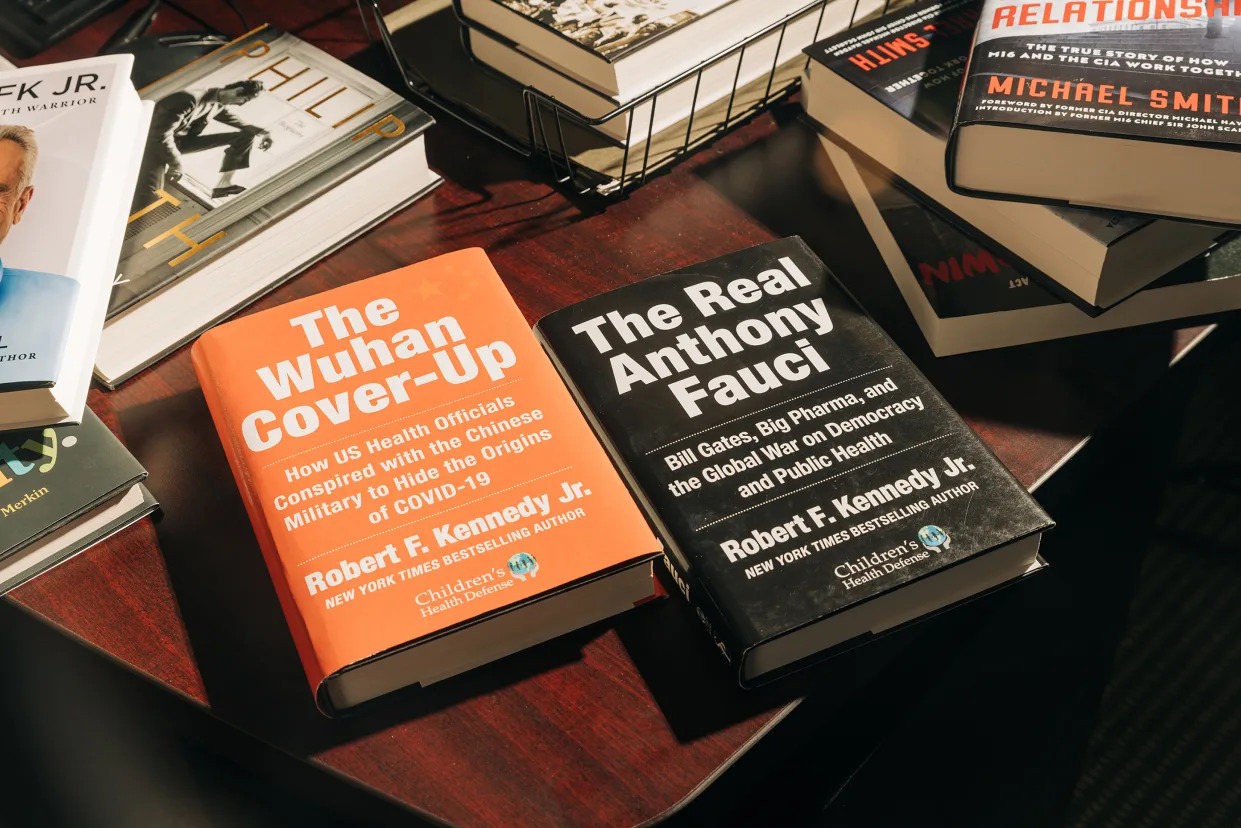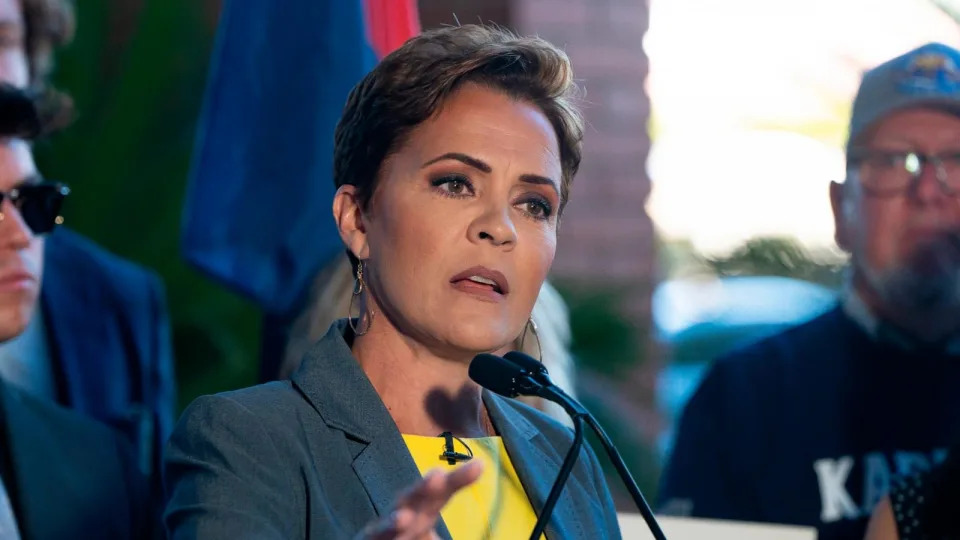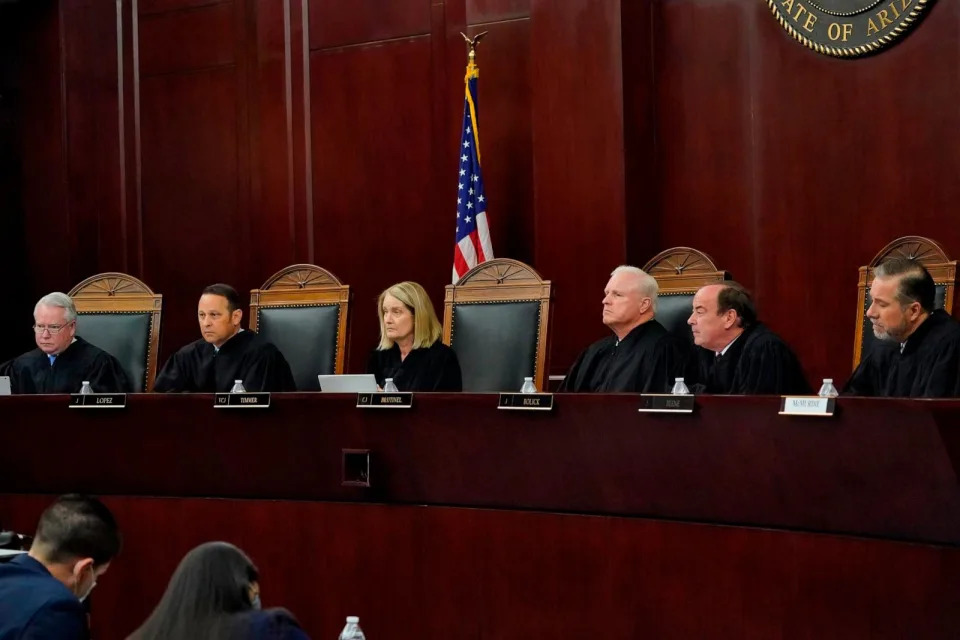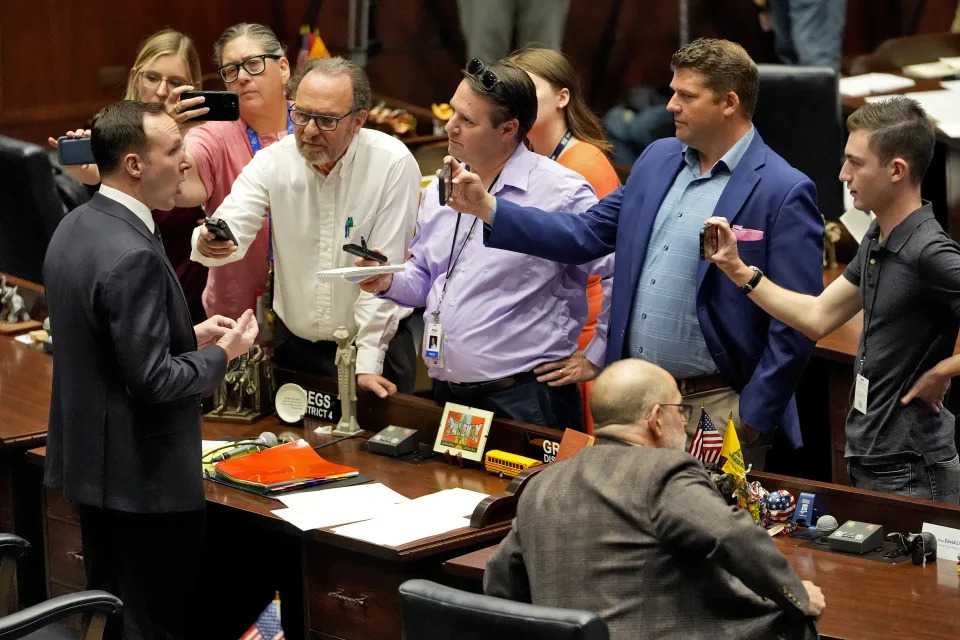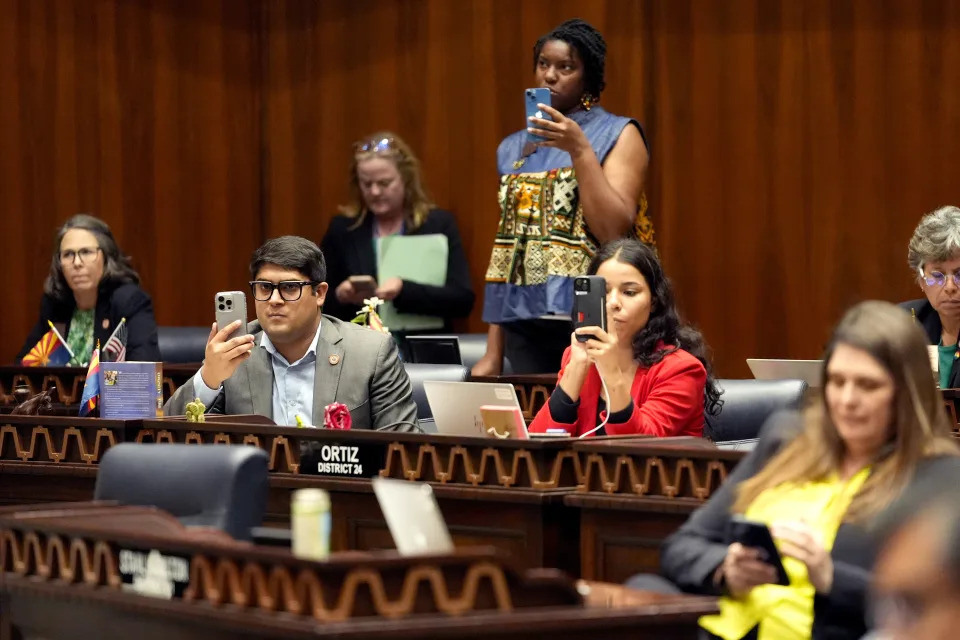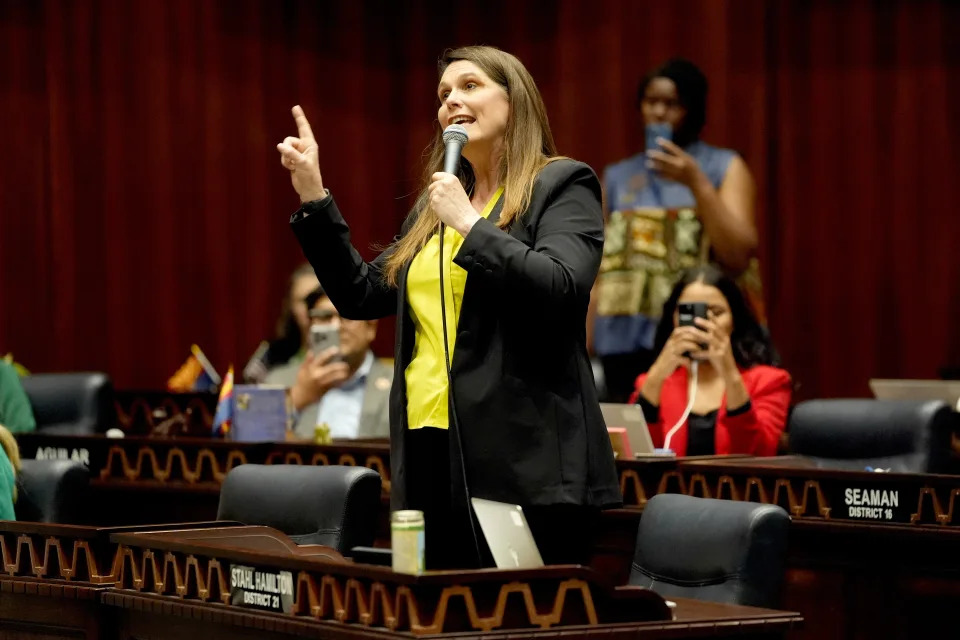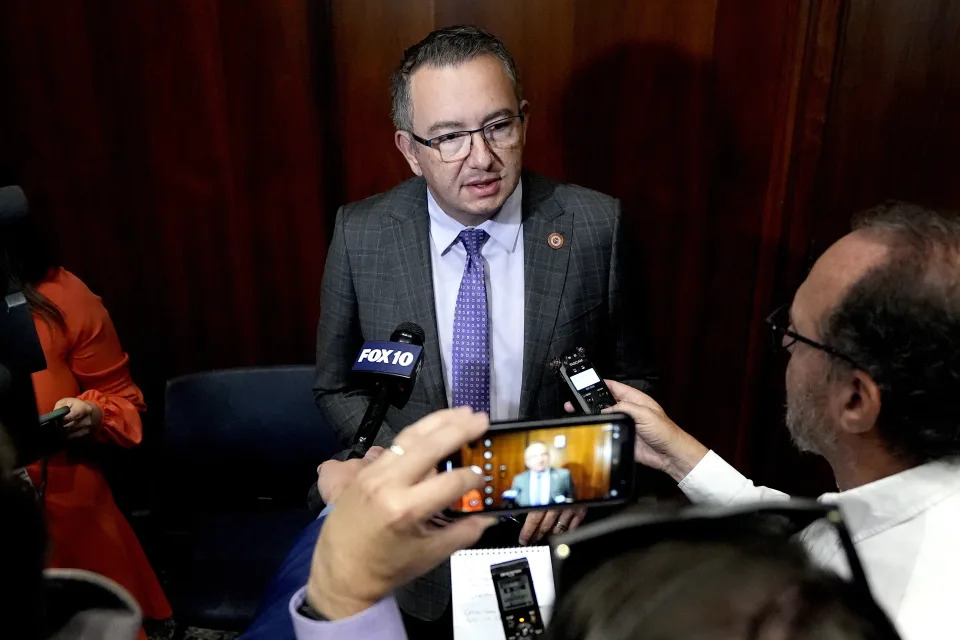Salon
Former GOP insider: Trump has “reprogrammed a generation” to fight against democracy
Chauncey DeVega – April 16, 2024

The first of Donald Trump’s four criminal trials is finally underway in Manhattan. This trial, on campaign-finance charges related to Trump’s alleged “hush money” payments to Stormy Daniels, is truly historic, marking the first time in American history that a current or former president has been tried for criminal offenses.
A guilty verdict in combination with the outcomes of his three other pending trials in Florida, Georgia and Washington, D.C., will clearly have an impact on how many Americans vote in the upcoming presidential election. The potential consequences should not be underestimated, given that current polls show a statistical dead heat between Trump and President Biden.
In an evocative preview published by the Economist, the “hush money” trial is described as a “meld of genres”:
The solemnity of the first prosecution of a former president, who also happens to be running again, will nod to tragedy. Really, though, this is a seedy burlesque, with a bit of farce. The case is about sex, money and blackmail. Mr. Trump’s former lawyer and fixer, who will testify against him, once described the conduct at issue as the “filth and muck of politics”…. Every trial is part theatre. This one, slated to run for six to eight weeks (beginning with jury selection), will be a sell-out.
Trump’s criminal trials are historic in other ways as well: They seem to echo the lessons of one of the most dreadful chapters in modern history. In 1923, Adolf Hitler was sentenced to five years in prison for an attempted coup (known as the Beer Hall Putsch) against the state government of Bavaria. He served less than one year, using the time to write the first volume of “Mein Kampf.” After his release, of course, Hitler continued his rise to power, becoming the de facto dictator of Germany less than 10 years later.
Donald Trump has already attempted one coup, and the American people were fortunate that it failed. He has never disavowed the Jan. 6 attack on the Capitol and, not unlike Hitler, continues to threaten violence (including imprisonment and execution for “treason”) against anyone and everyone who oppose him and the MAGA movement.
If Trump is actually sent to prison, the MAGA movement will likely be blunted, if not broken. American democracy and the might then be able to avoid the fate that befell Germany 90 or so years ago.
Miles Taylor served as chief of staff in the Department of Homeland Security during Trump’s first term. He spoke out early about Trump’s unfitness for office, as author of the 2018 New York Times “Anonymous” editorial. Since then, Taylor has written two books, “A Warning” and “Blowback: A Warning to Save Democracy from Trump’s Revenge.” His new paperback edition of “Blowback” has just been published, incorporating an argument that Trump’s second administration will be far more competent and formidable in its assault on American democracy and the rule of law than the first one was.
In the second half of our conversation, Taylor cautions that the existential danger to American democracy posed by Trump, the MAGA movement, and today’s Republican Party will continue well past Election Day 2024. The American people still have the power and agency to defeat those forces, Taylor says, but only if they shake off complacency and apathy and act to defend democracy and freedom — not just at the ballot box but throughout our society.
This is the second installment of a two-part conversation.
How do you assess Donald Trump and his MAGA movement’s danger to the safety and future of the country and our pluralistic democracy?
Look, I’m still a conservative. This isn’t about a Republican coming to the White House. I don’t even think Trump is a real Republican. It’s about a man who’s said he wants to use government as a tool of revenge — and to advance his own self-interest. That sort of intent — sitting atop the spy agencies and military apparatus of the government — writes its own horror story.
How do we locate Donald Trump and the American authoritarian movement as part of a larger global movement to end democracy, which also includes Vladimir Putin, Viktor Orbán, and other malign actors?
They are one and the same — reactions to populism. This is where I’ll say that the culprits here aren’t actually the autocrats themselves. It’s us. We’re choosing to empower these people. We can choose not to. The choice we make will define us.
Why do you think the news media and political elites haven’t made the global dimension of this threat to our democracy much clearer?
Attacks on Western democracy from within were not on my bingo card post-9/11. I fear the wayward ex-president will get his way eventually in trying to chip away at the community of democracies. He needn’t win back the White House to execute his vision. Trump has done something more insidious. By co-opting the Republican Party, he has reprogrammed a generation of devotees with his anti-constitutional and anti-democratic views. Copycats will try to fulfill his unfinished plans well beyond his lifespan, an undertaking made possible because GOP leaders have anesthetized their consciences and normalized Trump-like conduct for a decade.
If Trump is defeated this November, will the danger of right-wing political violence decrease? Many experts are concerned that a defeat on Election Day will only amplify the danger from Trump and his followers.
I’ll put it simply. Whether Trump wins or loses, the risk of political violence is high. If he loses, it will likely be far worse than Jan. 6. If he wins, I fear there will be a violent reaction around the country from the far left — a reaction that Trump will use to “justify” a crackdown. Thus, the spiral will begin. There’s no magic wand that can prevent this. We just need to show restraint, urge our neighbors to do the same and condemn political extremism.
Looking back, do you have any regrets about your time in the administration and how you chose to speak out? What do you know now that you wish you knew then?
Six years ago, I sounded an alarm that the sitting president was acting in a way that was “amoral” and “reckless” behind the scenes and that his own staff thought he posed a grave threat to the country. Many people dismissed me and believed Trump’s accusation that I was being disloyal.
Five years ago, I wrote a book about the deeper extent of instability inside the White House and why re-electing Trump could be catastrophic. Many people dismissed me and believed Trump’s claim that it was a “make-believe book” of “deep state” lies.
Four years ago, during the 2020 campaign, I said that if Trump lost, he would try to stay in office, a situation that could end “tragically.” Many people dismissed me and believed the claims of Trump’s acolytes that he’d do the right thing when the time came.
Three years ago, I assembled GOP dissenters to warn that Trumpism maintained a “viselike grip” on the party and that the anti-constitutional wing would overtake it completely if preventive action wasn’t taken. Many people dismissed me and said the GOP would move on from Trump.
Two years ago, I predicted that Trump would run again for the presidency and would likely lead the GOP field. Many people dismissed me and said Trump would be taken out by the courts first.
Last year, I released this book to explain in precise detail what would happen if Trump or another MAGA figure retook the White House, including the specific ways they would weaponize American government against their foes.
My goal here isn’t to prove that I’m prescient. Nor do I think I should be applauded because predictions about a dangerous man and his mob-like movement keep coming to fruition. What I’ve been saying for years about deeper threats to the American experiment should have been painfully obvious to almost anyone who’s paying attention. Yet far too many Americans are imperiling the future once more by ignoring the clanging and rattling truth that could cause the entire country to come undone.
What do you think will happen next? Where are we in the story of the Trumpocene?
First, I say in the book that America’s survival as the United States is not inevitable, but its demise will become a certainty if we continue down our current path. No free system of government can survive the willful ignorance of its people. But I’m not a fatalist; if I were, I wouldn’t have written this book or spent my life trying to protect our country. In fact, I am an optimist about the trajectory of free societies like our own. A democracy is a living thing. Like most living things, it will fight for its survival by exhausting all available possibilities for persistence, though a spirited effort might not be visible until it’s in mortal danger. That hour will be upon us soon.
Second, I note that America can survive the century if we renegotiate our social contract. By that I mean we should examine the underpinnings of our polity together — from the actual ways we vote and mechanisms for spurring political competition to the very Constitution that binds us. Although it may seem impracticable, a renegotiation will look more appealing in the decades ahead of us, more so, I suspect, in the face of genuine hardship. A people so divided cannot continue forward without addressing their divisions openly; otherwise, they should peaceably separate, or spiral toward a violent end.
Thankfully, we are blessed by nature with a say in the matter. Destiny is manifested by decision. So what happens next will depend on our collective willpower as a country and our resolve to eschew the dread of indecision. On that point I feel hopeful, because every guiding milestone we’ve placed on humankind’s trail has been put there by choice. And we can do so once again at a moment of our choosing.
What can the American people do to stop the bureaucrats, advisers and others who will try to orchestrate the Trump dictatorship if he wins this election?
The choice is ours, as it has always been. The founders saw America as an experiment, dependent entirely on our conscious efforts to sustain it and not on preordainment. Some readers will lament these grim forecasts while they loiter in the shadows, contorting logic to justify to themselves why their silence is an exception to the need for all Americans to admit the seriousness of our situation. To those readers I say: I don’t judge you. I’ve been you. I’ve made excuses for staying quiet. But companionship won’t save you from the consequences.
Fewer citizens will make the harder choice. Those who do will start defying their political tribes by calling for civility; they will resist intimidation and reject the moral equivalency crawling into our political discourse; they will put country over party by advocating for system-wide reforms to make our democracy more representative of all views and less prone to upheaval; and they will openly evangelize — through trial and error — the small rituals of civic faith that can restore a democracy. If this is you, then I believe you are America’s last, best hope.

